R.J. Stowell's Blog: rjsomeone, page 32
January 7, 2020
AM's Top Ten For the Moment
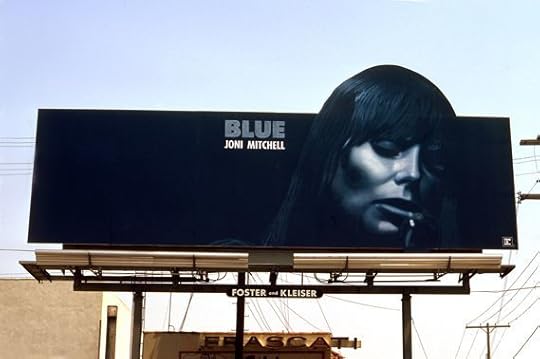 When we have guests on the iHeart radio program, I often ask for influences and favorite LPs. Because of this, I found that when people list their top five or 10 albums, there are always a few surprises; albums I've never even heard, or maybe never paid attention to.
When we have guests on the iHeart radio program, I often ask for influences and favorite LPs. Because of this, I found that when people list their top five or 10 albums, there are always a few surprises; albums I've never even heard, or maybe never paid attention to.The following, therefore, is my top 10, at least for the moment. I hope they will inspire you to listen to those albums you’ve never heard, and I also that you'll provide your top 10 in the comments so that I may discover something new as well.
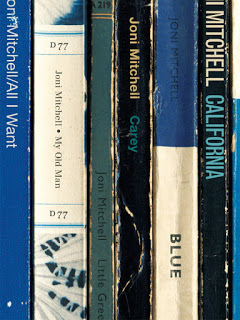 Joni Mitchell - Blue*Kate Bush - The Hounds of Love*Sergeant PepperThe Cure - DisintegrationJack’s Mannequin - Everything in TransitDark Side of the Moon*The Beach Boys - Pet Sounds*Weezer - Blue AlbumCopeland - Beneath Medicine TreeLed Zeppelin - Houses of the Holy
Joni Mitchell - Blue*Kate Bush - The Hounds of Love*Sergeant PepperThe Cure - DisintegrationJack’s Mannequin - Everything in TransitDark Side of the Moon*The Beach Boys - Pet Sounds*Weezer - Blue AlbumCopeland - Beneath Medicine TreeLed Zeppelin - Houses of the HolyAre these the greatest LPs ever recorded? Some of them (*). Some are just favorites. There is always room for another LP.
I go back and forth between Blue and Court and Spark as my favorite Joni, but also constantly have on the turntable Hejira, Ladies of the Canyon and For the Roses. So, my favorites are everchanging, but Blue is a perfect AM10 of an LP. Court and Spark to me is flawed only for personal reasons (not a fan of "Raised on Robbery" as being of the caliber of the song suite that begins with "People's Parties" and ends with "Just Like This Train," which is perfect, indeed).
The Hounds of Love and Disintegration are examples of just how sublime the 80s could be, when it wanted. Retrospectively, as much as the era encompassed my informative/club years, I dismiss, these days, the everpresent drum machine with its impeccable and lifeless precision, but there's none of that with The Cure and Bush's experimental use of the Fairlight defines the era. Obviously, when creating a list of only ten examples, LPs get left out. Ordinarily, the list would contain The Smiths' God Save the Queen, but, just 'cuz, I'm not listening to The Smiths right now. Same for New Order and Velvet Underground and Bowie.
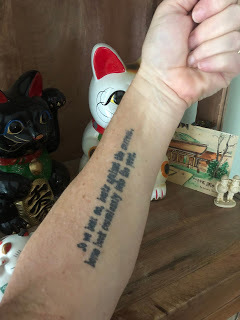 No, not blurry; just old and
No, not blurry; just old andtattooed on my crepe-paper
arm. "So we beat on, boats
against the current, borne back
ceaselessly into the past."Dark Side never gets old, and today, I cannot even listen to "Time" without breaking into tears. Sgt. Pepper is my lifelong companion, but I don't necessarily find it flawless; indeed, despite The Beatles' impact on my life, no Beatles' LP is flawless. There are songs that aren't my favorites, but no song to me should be tossed to the side - maybe a cover or two and yet... Pepper is like The Great Gatsby, also flawed (and I have the last line of Gatsby tattooed on my arm - to emphasize its importance) in that it is not just a pleasure, but an LP that I study and read about. I have the same passion for Pet Sounds.
Jack's Mannequin, Weezer and Copeland are the more modern LPs that impact me in the same way that Pepper does and are constantly on my turntable. Houses of the Holy is a go-to that I've been going to a lot lately, but it's one that will fall off the list occasionally or get replaced by LZ4.
How did I create this list? Off the top of my head. If I've forgotten something, it means I'm not actively listening to it right now. I created the list yesterday; today I realized that I left out Joy Division and Death Cab and any jazz or Every Picture Tells a Story or The Moody Blues and Talking Heads and Peter Gabriel and Yes and - you get the point.
Join us on Facebook and leave me your Top 10 - what am I missing? What have I overlooked?
Published on January 07, 2020 05:56
AM's Top Ten For the Moment...
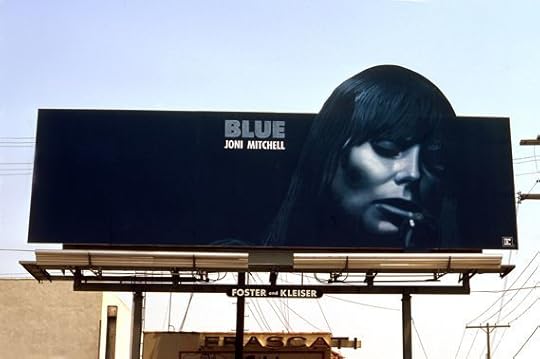 One of My Father's BillboardsWhen we have guests on the iHeart radio program, I often ask for influences and favorite LPs. Because of this, I found that when people list their top five or 10 albums, there are always a few surprises; albums I've never even heard, or maybe never paid attention to.
One of My Father's BillboardsWhen we have guests on the iHeart radio program, I often ask for influences and favorite LPs. Because of this, I found that when people list their top five or 10 albums, there are always a few surprises; albums I've never even heard, or maybe never paid attention to.The following, therefore, is my top 10, at least for the moment. I hope they will inspire you to listen to those albums you’ve never heard, and I also that you'll provide your top 10 in the comments so that I may discover something new as well.
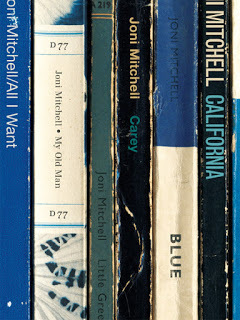 Joni Mitchell - Blue*Kate Bush - The Hounds of Love*Sergeant PepperThe Cure - DisintegrationJack’s Mannequin - Everything in TransitDark Side of the Moon*The Beach Boys - Pet Sounds*Weezer - Blue AlbumCopeland - Beneath Medicine TreeLed Zeppelin - Houses of the Holy
Joni Mitchell - Blue*Kate Bush - The Hounds of Love*Sergeant PepperThe Cure - DisintegrationJack’s Mannequin - Everything in TransitDark Side of the Moon*The Beach Boys - Pet Sounds*Weezer - Blue AlbumCopeland - Beneath Medicine TreeLed Zeppelin - Houses of the HolyAre these the greatest LPs ever recorded? Some of them (*). Some are just favorites. There is always room for another LP.
I go back and forth between Blue and Court and Spark as my favorite Joni, but also constantly have on the turntable Hejira, Ladies of the Canyon and For the Roses. So, my favorites are everchanging, but Blue is a perfect AM10 of an LP. Court and Spark to me is flawed only for personal reasons (not a fan of "Raised on Robbery" as being of the caliber of the song suite that begins with "People's Parties" and ends with "Just Like This Train," which is perfect, indeed).
The Hounds of Love and Disintegration are examples of just how sublime the 80s could be, when it wanted. Retrospectively, as much as the era encompassed my informative/club years, I dismiss, these days, the everpresent drum machine with its impeccable and lifeless precision, but there's none of that with The Cure and Bush's experimental use of the Fairlight defines the era. Obviously, when creating a list of only ten examples, LPs get left out. Ordinarily, the list would contain The Smiths' God Save the Queen, but, just 'cuz, I'm not listening to The Smiths right now. Same for New Order and Velvet Underground and Bowie.
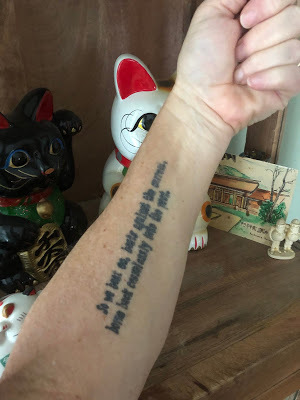 No, not blurry; just old and tattooed on my
No, not blurry; just old and tattooed on mycrepe-paper arm. "So we beat on, boats against
the current, borne back ceaselessly into the past."Dark Side never gets old, and today, I cannot even listen to "Time" without breaking into tears. Sgt. Pepper is my lifelong companion, but I don't necessarily find it flawless; indeed, despite The Beatles' impact on my life, no Beatles' LP is flawless. There are songs that aren't my favorites, but no song to me should be tossed to the side - maybe a cover or two. Pepper is like The Great Gatsby (and I have the last line of Gatsby tattooed on my arm - to emphasize its importance) in that it is not just a pleasure, but an LP that I study and read about. I have the same passion for Pet Sounds.
Jack's Mannequin, Weezer and Copeland are the more modern LPs that impact me in the same way that Pepper does and are constantly on my turntable. Houses of the Holy is a go-to that I've been going to a lot lately, but it's one that will fall off the list occasionally, or get replaced by LZ4. How did I create this list? Off the top of my head. If I've forgotten something, it means I'm not actively listening to it right now. I created the list yesterday; today I realized that I left out Joy Division and Death Cab and any jazz or Every Picture Tells a Story or The Moody Blues and Talking Heads and Peter Gabriel and Yes and - you get the point.
Join us on Facebook and leave me your Top 10 - what am I missing? What have I overlooked?
Published on January 07, 2020 05:41
January 1, 2020
Jackson Browne - These Days
 While Jackson Browne's lyrics are more often known for their sociopolitical content, "These Days," the iconic tune written when Jackson was a high school student in Orange County, is a song of unrequited love and regret. Originally recorded for the Nina demos in 1967, the song was given to Nico for her solo LP, Chelsea Girl, in a version Jackson would dismiss when he finally recorded it in 1973.
While Jackson Browne's lyrics are more often known for their sociopolitical content, "These Days," the iconic tune written when Jackson was a high school student in Orange County, is a song of unrequited love and regret. Originally recorded for the Nina demos in 1967, the song was given to Nico for her solo LP, Chelsea Girl, in a version Jackson would dismiss when he finally recorded it in 1973.By 1970, Jackson was well established in L.A. and the Laurel Canyon scene, but he'd yet to release an LP of his own tunes. Before his debut release, Browne's songs were recorded by Tom Rush, Joan Baez, The Byrds, Linda Ronstadt and The Eagles, among others, and before he could take a stab at releasing his own version, the song would travel south for Gregg Allman's 1973 solo album, Laid Back. Allman's cover seems to steal Browne's thunder just as The Eagles had when they recorded "Take It Easy," a song Browne co-wrote with Glenn Frey. Browne based his own arrangement of "These Days" on Allman's, crediting him in the liner notes. Allman alters the phrasing of the lines, honing a bluesier cadence, and the sense of loss in Allman’s voice is unmistakable, coming shortly after the death of his brother Duane.
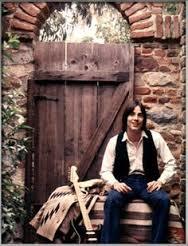 Browne's version, recorded in Studio One at Sunset Sound, follows Allman's acoustic pace, with David Lindley supplying slide guitar, and bassist Doug Haywood the harmony vocal. Jim Keltner's drums and David Paich's piano give the song the classic 70s folk-rock feel of early Asylum Records. (There was indeed an expectation if an LP graced that blue label with the Asylum door.) For many contemporary listeners, though, "These Days" will forever be linked with Wes Anderson's The Royal Tenenbaums. Browne gave his permission for use in the film and promptly forgot about it until he was at the theater and the familiar guitar intro cued up. He didn't initially even recognize his own playing.
Browne's version, recorded in Studio One at Sunset Sound, follows Allman's acoustic pace, with David Lindley supplying slide guitar, and bassist Doug Haywood the harmony vocal. Jim Keltner's drums and David Paich's piano give the song the classic 70s folk-rock feel of early Asylum Records. (There was indeed an expectation if an LP graced that blue label with the Asylum door.) For many contemporary listeners, though, "These Days" will forever be linked with Wes Anderson's The Royal Tenenbaums. Browne gave his permission for use in the film and promptly forgot about it until he was at the theater and the familiar guitar intro cued up. He didn't initially even recognize his own playing.Bruce Springsteen, a longtime fan who inducted Browne into the Hall of Fame in March 2004, described the first time he heard Browne perform. "As I listened that night I knew that this guy was simply one of the best," said Springsteen. "Each song was like a diamond and my first thought was, 'Damn, he's good.' My second thought was, 'I need less words.'" (As someone who truly appreciates Asbury Park, I don't know that it was good advice in retrospect.)
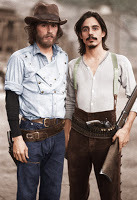 As stated, Browne is known as the more political of the Laurel Canyon crowd, but to this writer, it's the angst and the regret that make up the artist's most memorable tunes; think "Fountain of Sorrow," "Late for the Sky" and "Somebody's Baby," the latter adapted for Cameron Crowe's Fast Times at Ridgemont High, a coming of age story about teens struggling with sex, love, and the future. Browne's song (which some speculate was inspired by his own absentee father) is used as the theme to Stacy's misadventures with the opposite sex (as played by an obscenely young Jennifer Jason Leigh). The song appears as Stacy loses her virginity to the local Lothario, Damone, and while it may not work out so well for our heroine, it certainly teaches a lesson about fantasy and reality.
As stated, Browne is known as the more political of the Laurel Canyon crowd, but to this writer, it's the angst and the regret that make up the artist's most memorable tunes; think "Fountain of Sorrow," "Late for the Sky" and "Somebody's Baby," the latter adapted for Cameron Crowe's Fast Times at Ridgemont High, a coming of age story about teens struggling with sex, love, and the future. Browne's song (which some speculate was inspired by his own absentee father) is used as the theme to Stacy's misadventures with the opposite sex (as played by an obscenely young Jennifer Jason Leigh). The song appears as Stacy loses her virginity to the local Lothario, Damone, and while it may not work out so well for our heroine, it certainly teaches a lesson about fantasy and reality.
Published on January 01, 2020 09:20
December 31, 2019
James Taylor - 50 Years Ago
For recovering addicts, moving to another locale to escape the confines of substance abuse is called a "geographic cure." That the case or dumb luck, James Taylor, battling an addiction to heroin, was probably looking for that geographic cure when he moved to London in 1968. The young singer-songwriter had a lot to prove. He'd come from a wealthy and talented family: his mother a classically trained soprano and his siblings – Livingston, Alex and Kate – were finding various degrees of success in popular music. At 15 he became friends with Danny "Kootch" Kortchmar and the two formed a band that would eventually become The Flying Machine. However, JT's musical progress was interrupted when, at 17, he committed himself to a mental hospital in Massachusetts for treatment of depression. When he was released, he said, "I got involved in 'junk.'"
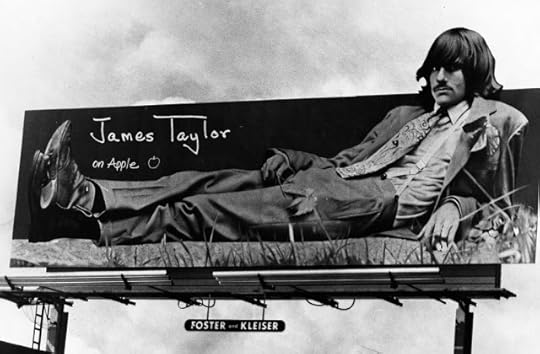 One of My Father's Billboards
One of My Father's Billboards
When he arrived in London, Taylor's friendship with Kootch was his ticket to ride to audition for Peter Asher, of Peter & Gordon fame. Asher was then an A&R rep for the fledgling Beatles record label, Apple. While the Beatles were still under contract to EMI and Capitol Records, Apple Records had big plans to sign other artists and James would become the first non-British act to be signed by Apple.
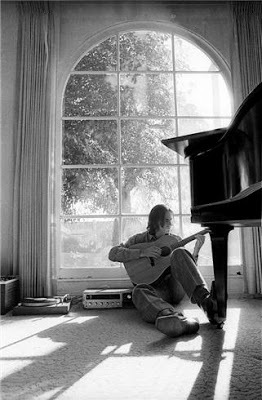 With Asher producing, the album was recorded from July to October 1968, at Trident Studios, the same time The Beatles were recording The White Album at EMI (Abbey Road). Paul McCartney played bass and her and George Harrison provided back-up vocals on the album's single, "Carolina In My Mind." For the song "Something in the Way She Moves," Taylor wanted to title the song "I Feel Fine," after a dominant line in the chorus. That title was taken, of course, by The Beatles. And everyone knows the first line to the George Harrison song, "Something," from The Beatles' Abbey Road ("Something" was also taken). So, "Thanks, James," said George, though who borrowed from whom is a mystery.
With Asher producing, the album was recorded from July to October 1968, at Trident Studios, the same time The Beatles were recording The White Album at EMI (Abbey Road). Paul McCartney played bass and her and George Harrison provided back-up vocals on the album's single, "Carolina In My Mind." For the song "Something in the Way She Moves," Taylor wanted to title the song "I Feel Fine," after a dominant line in the chorus. That title was taken, of course, by The Beatles. And everyone knows the first line to the George Harrison song, "Something," from The Beatles' Abbey Road ("Something" was also taken). So, "Thanks, James," said George, though who borrowed from whom is a mystery.
The critical reaction to James Taylor was positive, but the LP didn't sell, in part due to Taylor's hospitalization for drug addiction: "I kicked junk for about a half a year and then spent a while in Chapel Hill, North Carolina. I was clean. Then I started to take a lot of codeine. I went to Europe and started to take opium and then got into smack heavy for about nine months. I got into it real thick there. I came back to this country and kicked…"
Management changes at Apple were in the wind by the time of the LP's release. A bad guy, (Beatles' lore is seeded with bad guys) who'd ripped off The Rolling Stones would reappear in the Beatles inner sanctum, and Taylor's fate was sealed. Allen Klein had manipulated the band into signing over the copyrights of all Rolling Stones songs recorded before 1971. (A messy 17-year legal battle was won by Klein, which Keith Richards called "the price of an education.") In 1969, Allen Klein became Apple's president, based on his three-to-one support from the Beatles, Paul McCartney being the only group member to oppose his involvement. McCartney's subsequent withdrawal from Apple decision-making would give Klein free rein to purge the label of alleged antagonists. Peter Asher, the brother of Paul's at the time girlfriend, Jane, was let go, and Taylor followed him out the door.
James Taylor is a tour de force in one respect: it is pure, unadulterated James at 19 years of age. While Mud Slide Slim and Gorilla, show the artist in his prime, and Hourglass displays the incredible maturity of life experience, this is young James, the hangin' around with Joni and Mama Cass James, the Laurel Canyoner who had to get away from L.A., city of the fallen angels.
 One of My Father's Billboards
One of My Father's BillboardsWhen he arrived in London, Taylor's friendship with Kootch was his ticket to ride to audition for Peter Asher, of Peter & Gordon fame. Asher was then an A&R rep for the fledgling Beatles record label, Apple. While the Beatles were still under contract to EMI and Capitol Records, Apple Records had big plans to sign other artists and James would become the first non-British act to be signed by Apple.
 With Asher producing, the album was recorded from July to October 1968, at Trident Studios, the same time The Beatles were recording The White Album at EMI (Abbey Road). Paul McCartney played bass and her and George Harrison provided back-up vocals on the album's single, "Carolina In My Mind." For the song "Something in the Way She Moves," Taylor wanted to title the song "I Feel Fine," after a dominant line in the chorus. That title was taken, of course, by The Beatles. And everyone knows the first line to the George Harrison song, "Something," from The Beatles' Abbey Road ("Something" was also taken). So, "Thanks, James," said George, though who borrowed from whom is a mystery.
With Asher producing, the album was recorded from July to October 1968, at Trident Studios, the same time The Beatles were recording The White Album at EMI (Abbey Road). Paul McCartney played bass and her and George Harrison provided back-up vocals on the album's single, "Carolina In My Mind." For the song "Something in the Way She Moves," Taylor wanted to title the song "I Feel Fine," after a dominant line in the chorus. That title was taken, of course, by The Beatles. And everyone knows the first line to the George Harrison song, "Something," from The Beatles' Abbey Road ("Something" was also taken). So, "Thanks, James," said George, though who borrowed from whom is a mystery.The critical reaction to James Taylor was positive, but the LP didn't sell, in part due to Taylor's hospitalization for drug addiction: "I kicked junk for about a half a year and then spent a while in Chapel Hill, North Carolina. I was clean. Then I started to take a lot of codeine. I went to Europe and started to take opium and then got into smack heavy for about nine months. I got into it real thick there. I came back to this country and kicked…"
Management changes at Apple were in the wind by the time of the LP's release. A bad guy, (Beatles' lore is seeded with bad guys) who'd ripped off The Rolling Stones would reappear in the Beatles inner sanctum, and Taylor's fate was sealed. Allen Klein had manipulated the band into signing over the copyrights of all Rolling Stones songs recorded before 1971. (A messy 17-year legal battle was won by Klein, which Keith Richards called "the price of an education.") In 1969, Allen Klein became Apple's president, based on his three-to-one support from the Beatles, Paul McCartney being the only group member to oppose his involvement. McCartney's subsequent withdrawal from Apple decision-making would give Klein free rein to purge the label of alleged antagonists. Peter Asher, the brother of Paul's at the time girlfriend, Jane, was let go, and Taylor followed him out the door.
James Taylor is a tour de force in one respect: it is pure, unadulterated James at 19 years of age. While Mud Slide Slim and Gorilla, show the artist in his prime, and Hourglass displays the incredible maturity of life experience, this is young James, the hangin' around with Joni and Mama Cass James, the Laurel Canyoner who had to get away from L.A., city of the fallen angels.
Published on December 31, 2019 14:23
James Taylor, Rainy Day Man
For recovering addicts, moving to another locale to escape the confines of substance abuse is called a "geographic cure." and that's what James Taylor, battling an addiction to heroin, was looking for when he moved to London in 1968. The young singer-songwriter had a lot to prove. He'd come from a wealthy and talented family: his mother a classically trained soprano and his siblings – Livingston, Alex and Kate – were finding various degrees of success in popular music. At 15 he became friends with Danny "Kootch" Kortchmar and the two formed a band that would eventually become The Flying Machine. However, JT's musical progress was interrupted when, at 17, he committed himself to a mental hospital in Massachusetts for treatment of depression. When he was released, he said, "I got involved in 'junk.'"
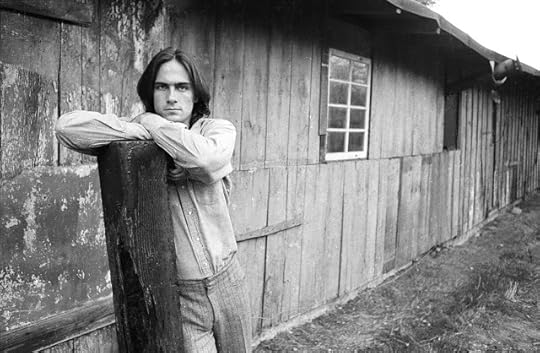
When he arrived in London, Taylor's friendship with Kootch was his ticket to ride to audition for Peter Asher, of Peter & Gordon fame. Asher was then an A&R rep for the fledgling Beatles record label, Apple. While the Beatles were still under contract to EMI and Capitol Records, Apple Records had big plans to sign other artists and James would become the first non-British act to be signed by Apple.
With Asher producing, the album was recorded from July to October 1968, at Trident Studios, the same time The Beatles were recording The White Album at EMI (Abbey Road). Paul McCartney played bass and her and George Harrison provided back-up vocals on the album's single, "Carolina In My Mind." For the song "Something in the Way She Moves," Taylor wanted to title the song "I Feel Fine," after a dominant line in the chorus. That title was taken, of course, by The Beatles. And everyone knows the first line to the George Harrison song, "Something," from The Beatles' Abbey Road ("Something" was also taken). So, "Thanks, James," said George, though who borrowed from whom is a mystery.
The critical reaction to James Taylor was positive, but the LP didn't sell, in part due to Taylor's hospitalization for drug addiction: "I kicked junk for about a half a year and then spent a while in Chapel Hill, North Carolina. I was clean. Then I started to take a lot of codeine. I went to Europe and started to take opium and then got into smack heavy for about nine months. I got into it real thick there. I came back to this country and kicked…"
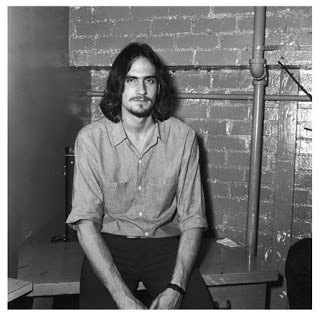 Management changes at Apple were in the wind by the time of the LP's release. A bad guy, (Beatles' lore is seeded with bad guys) who'd ripped off The Rolling Stones would reappear in the Beatles inner sanctum, and Taylor's fate was sealed. Allen Klein had manipulated the band into signing over the copyrights of all Rolling Stones songs recorded before 1971. (A messy 17-year legal battle was won by Klein, which Keith Richards called "the price of an education.") In 1969, Allen Klein became Apple's president, based on his three-to-one support from the Beatles, Paul McCartney being the only group member to oppose his involvement. McCartney's subsequent withdrawal from Apple decision-making would give Klein free rein to purge the label of alleged antagonists. Peter Asher, the brother of Paul's at the time girlfriend, Jane, was let go, and Taylor followed him out the door.
Management changes at Apple were in the wind by the time of the LP's release. A bad guy, (Beatles' lore is seeded with bad guys) who'd ripped off The Rolling Stones would reappear in the Beatles inner sanctum, and Taylor's fate was sealed. Allen Klein had manipulated the band into signing over the copyrights of all Rolling Stones songs recorded before 1971. (A messy 17-year legal battle was won by Klein, which Keith Richards called "the price of an education.") In 1969, Allen Klein became Apple's president, based on his three-to-one support from the Beatles, Paul McCartney being the only group member to oppose his involvement. McCartney's subsequent withdrawal from Apple decision-making would give Klein free rein to purge the label of alleged antagonists. Peter Asher, the brother of Paul's at the time girlfriend, Jane, was let go, and Taylor followed him out the door.
James Taylor is a tour de force in one respect: it is pure, unadulterated James at 19 years of age. While Mud Slide Slim and Gorilla, show the artist in his prime, and Hourglass displays the incredible maturity of life experience, this is young James, the hangin' around with Joni and Mama Cass James, the Laurel Canyoner who had to get away from L.A., city of the fallen angels.

When he arrived in London, Taylor's friendship with Kootch was his ticket to ride to audition for Peter Asher, of Peter & Gordon fame. Asher was then an A&R rep for the fledgling Beatles record label, Apple. While the Beatles were still under contract to EMI and Capitol Records, Apple Records had big plans to sign other artists and James would become the first non-British act to be signed by Apple.
With Asher producing, the album was recorded from July to October 1968, at Trident Studios, the same time The Beatles were recording The White Album at EMI (Abbey Road). Paul McCartney played bass and her and George Harrison provided back-up vocals on the album's single, "Carolina In My Mind." For the song "Something in the Way She Moves," Taylor wanted to title the song "I Feel Fine," after a dominant line in the chorus. That title was taken, of course, by The Beatles. And everyone knows the first line to the George Harrison song, "Something," from The Beatles' Abbey Road ("Something" was also taken). So, "Thanks, James," said George, though who borrowed from whom is a mystery.
The critical reaction to James Taylor was positive, but the LP didn't sell, in part due to Taylor's hospitalization for drug addiction: "I kicked junk for about a half a year and then spent a while in Chapel Hill, North Carolina. I was clean. Then I started to take a lot of codeine. I went to Europe and started to take opium and then got into smack heavy for about nine months. I got into it real thick there. I came back to this country and kicked…"
 Management changes at Apple were in the wind by the time of the LP's release. A bad guy, (Beatles' lore is seeded with bad guys) who'd ripped off The Rolling Stones would reappear in the Beatles inner sanctum, and Taylor's fate was sealed. Allen Klein had manipulated the band into signing over the copyrights of all Rolling Stones songs recorded before 1971. (A messy 17-year legal battle was won by Klein, which Keith Richards called "the price of an education.") In 1969, Allen Klein became Apple's president, based on his three-to-one support from the Beatles, Paul McCartney being the only group member to oppose his involvement. McCartney's subsequent withdrawal from Apple decision-making would give Klein free rein to purge the label of alleged antagonists. Peter Asher, the brother of Paul's at the time girlfriend, Jane, was let go, and Taylor followed him out the door.
Management changes at Apple were in the wind by the time of the LP's release. A bad guy, (Beatles' lore is seeded with bad guys) who'd ripped off The Rolling Stones would reappear in the Beatles inner sanctum, and Taylor's fate was sealed. Allen Klein had manipulated the band into signing over the copyrights of all Rolling Stones songs recorded before 1971. (A messy 17-year legal battle was won by Klein, which Keith Richards called "the price of an education.") In 1969, Allen Klein became Apple's president, based on his three-to-one support from the Beatles, Paul McCartney being the only group member to oppose his involvement. McCartney's subsequent withdrawal from Apple decision-making would give Klein free rein to purge the label of alleged antagonists. Peter Asher, the brother of Paul's at the time girlfriend, Jane, was let go, and Taylor followed him out the door.James Taylor is a tour de force in one respect: it is pure, unadulterated James at 19 years of age. While Mud Slide Slim and Gorilla, show the artist in his prime, and Hourglass displays the incredible maturity of life experience, this is young James, the hangin' around with Joni and Mama Cass James, the Laurel Canyoner who had to get away from L.A., city of the fallen angels.
Published on December 31, 2019 14:22
December 29, 2019
Follow AM on FaceBook

AM and Miles From Nowhere are now on FaceBook! Join us. Don't forget to follow Miles on his further adventures from nowhere. We hope the Facebook page will enhance the AM experience as we celebrate the music we love.
If you haven't already done so, don't miss out reading Miles From Nowhere; it's free on Kindle Direct and available both here on AM and on Amazon. It leads to the new novel, Calif., the further travels of Miles, set for release in March 2020.
Send an email to rjsomeone@gmail.com for a personalized copy.
Published on December 29, 2019 06:33
December 28, 2019
Seals and Crofts
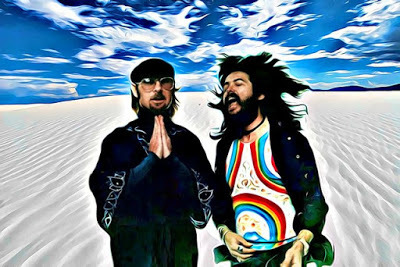 50 years ago, Eugene "Jim" Seals and Darrell George "Dash" first performed together as a duo. In 1963, Seals, Crofts, Glen Campbell and Jerry Cole left The Champs (of “Tequila” fame) to form Glen Campbell and the Gee Cees, who played regularly at The Crossbow in Panorama City, California, just across Van Nuys Blvd. from the Chevy Plant. The Crossbow was a hangout for many of the band members who later would be known as The Wrecking Crew. David Gates of Bread said, "We drove from club to club, three a night, auditioned for everybody until we finally got a job and got rolling again. And then on Saturday nights, after hours, musicians from all over the city would meet at a place called the Crossbow, in the Valley. It was at the Crossbow that I met guys like Steve Douglas, Glen Campbell, James Burton, Leon Russell, Chuck Blackwell, [and] Jerry Cole. Slowly they were getting into recordings, mostly demo sessions, some union jobs. By jamming with these people, I got more work. All of a sudden, I was being asked to play on demo sessions and then on recordings."
50 years ago, Eugene "Jim" Seals and Darrell George "Dash" first performed together as a duo. In 1963, Seals, Crofts, Glen Campbell and Jerry Cole left The Champs (of “Tequila” fame) to form Glen Campbell and the Gee Cees, who played regularly at The Crossbow in Panorama City, California, just across Van Nuys Blvd. from the Chevy Plant. The Crossbow was a hangout for many of the band members who later would be known as The Wrecking Crew. David Gates of Bread said, "We drove from club to club, three a night, auditioned for everybody until we finally got a job and got rolling again. And then on Saturday nights, after hours, musicians from all over the city would meet at a place called the Crossbow, in the Valley. It was at the Crossbow that I met guys like Steve Douglas, Glen Campbell, James Burton, Leon Russell, Chuck Blackwell, [and] Jerry Cole. Slowly they were getting into recordings, mostly demo sessions, some union jobs. By jamming with these people, I got more work. All of a sudden, I was being asked to play on demo sessions and then on recordings."Glen Campbell and the Gee Cees only lasted a couple years before they went their separate ways. Crofts returned to Texas, while Seals joined a band called The Dawnbreakers. Glen Campbell would have his breakthrough hit with “Guess I’m Dumb” in June 1965, written for him by Brian Wilson and Russ Titelman (producer of James Taylor’s Gorilla, Randy Newman’s Sail Away and Eric Clapton’s Unplugged). After the failure of The Dawnbreakers, the two friends got back together with Seals on guitar, saxophone and violin and Crofts on guitar and mandolin. They signed a contract with Talent Associates (TA) in 1969 and released two LPs, neither of which charted. The duo signed a new contract with Warner Bros. in August 1971. Their first album for WB didn’t have any more success than the others, but their 4th LP, Summer Breeze charted at No. 7 in 1972. The record went gold in December 1972, selling 500,000 units. The LP produced two monster hits in the title track and “Hummingbird.”
The duo’s biggest hit would come with the title track of their next LP, Diamond Girl, in 1973. My first encounter with Seals and Crofts was in yearbook class at Newbury Park High School (me and Belinda Carlisle) when the decision was made to have “We May Never Pass This Way Again” as the 1974 Pawprint theme. It has remained my favorite Seals and Crofts track all these years. They would not top their success with these two LPs, and would only chart with one my hit, “Getting Closer” in 1976, one of those songs that defines the California Sound of artists like Christopher Cross and Al Stewart. Despite the lack of chart success, the pair took their Bah’ai faith seriously, as George Harrison did with Hinduism, and each of the duo’s LPs reflects the Bah’ai principles of unity and equality.
Published on December 28, 2019 05:32
December 20, 2019
George Harrison and Merry Christmas
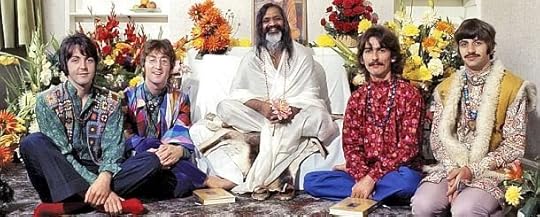
When George Harrison passed away in 2001, his widow Olivia said, "George left this world in the same way he lived in it - in the consciousness of God. There was a profound experience when he left his body. It was visible. He just lit the room."
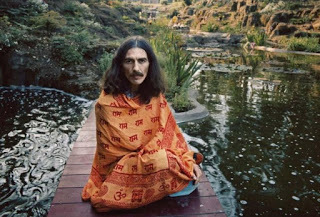 George's spiritual path was based on Hinduism, which he first embraced through the influence of Pattie Boyd and an encounter with Swami Vishnu-devananda, founder of Sivananda Yoga, who gave each member of the Beatles a signed copy of his book, The Complete Illustrated Book of Yoga. The Beatles were on location in the Bahamas filming Help! From there, George learned to play the sitar, with Ravi Shankar as his teacher. Shankar was not only a musical mentor, but a adviser as well.
George's spiritual path was based on Hinduism, which he first embraced through the influence of Pattie Boyd and an encounter with Swami Vishnu-devananda, founder of Sivananda Yoga, who gave each member of the Beatles a signed copy of his book, The Complete Illustrated Book of Yoga. The Beatles were on location in the Bahamas filming Help! From there, George learned to play the sitar, with Ravi Shankar as his teacher. Shankar was not only a musical mentor, but a adviser as well.Though the other Beatles lost interest in the Maharishi after Rishikesh, George remained committed to his spiritual practice. In its popular form, Hinduism may seem to be polytheistic, with many gods, when actually, Hinduism teaches that there is only One Reality, the foundation of our being. Our task in life is to realize our divine potential, our union with this One Reality. In Hindu scriptures, Ultimate Reality, God, is called Brahman.
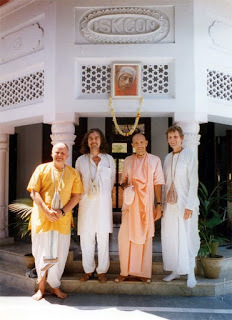 George followed a path of devotion the rest of his life. Following this path, one must choose an image of God, and devote oneself to that image. For George, it was Krishna, God in human form. George was also ecumenically minded. He believed that Jesus was a manifestation of God, and said in an interview in the early eighties, "The Greek word for Christ is Kristos, which is, let's face it, Krishna, and Kristos is the same name actually." During his 1974 American concert tour, George encouraged his fans to "Chant Krishna! Chant Jesus! Chant Buddha!"
George followed a path of devotion the rest of his life. Following this path, one must choose an image of God, and devote oneself to that image. For George, it was Krishna, God in human form. George was also ecumenically minded. He believed that Jesus was a manifestation of God, and said in an interview in the early eighties, "The Greek word for Christ is Kristos, which is, let's face it, Krishna, and Kristos is the same name actually." During his 1974 American concert tour, George encouraged his fans to "Chant Krishna! Chant Jesus! Chant Buddha!"George's spiritual practice was largely based on saying a mantra and chanting the Name of God. His big #1 hit from 1971, "My Sweet Lord," features the chanting of the Hare Krishna mantra, and chanting the Divine Names of Vishnu and Lord Rama. "Awaiting on You All," from All Things Must Pass proclaims that by "chanting the Names of the Lord you'll be free.."
 You don't need no passportAnd you don't need no visasYou don't need to designate or to emigrateBefore you can see JesusIf you open up your heartYou'll see he's right thereAlways was and will beHe'll relieve you of your cares.
You don't need no passportAnd you don't need no visasYou don't need to designate or to emigrateBefore you can see JesusIf you open up your heartYou'll see he's right thereAlways was and will beHe'll relieve you of your cares.Though God has been scientifically rooted out of fashion, George's life seemed full to its end. Maybe we aren't ready to lose our spirituality, no matter what the science dictates. With that in mind, Merry Christmas, Hare Rama.
Published on December 20, 2019 08:38
All Things Must Pass (AM10)
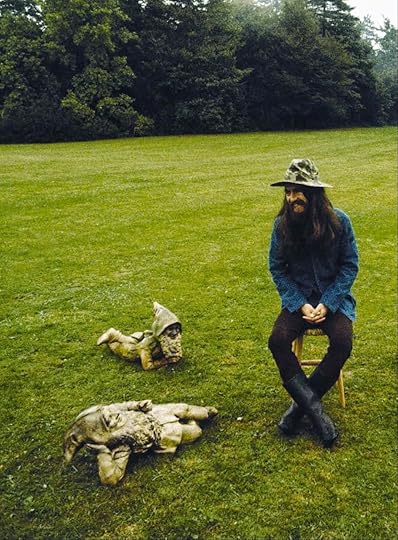 This is what happens after sublimating your creative impulses for seven years because you're in a band with songwriters named John and Paul. In All Things Must Pass George Harrison manages the improbable, merging spirituality with incredibly beautiful music to create rock history. Normally, religious converts sound contrived or corny when singing of their convictions, but Harrison (a converted Hindu of Hare Krishna denomination) comes across as genuine and inspired by his faith, and the songs are so strong they could have stood out on any Beatles album. Pop melodies don't get better than this.
This is what happens after sublimating your creative impulses for seven years because you're in a band with songwriters named John and Paul. In All Things Must Pass George Harrison manages the improbable, merging spirituality with incredibly beautiful music to create rock history. Normally, religious converts sound contrived or corny when singing of their convictions, but Harrison (a converted Hindu of Hare Krishna denomination) comes across as genuine and inspired by his faith, and the songs are so strong they could have stood out on any Beatles album. Pop melodies don't get better than this.Though released in 1970, this was the work (Harrison’s third solo effort) that the otherBeatle had been contemplating since Revolver. What easily strikes the listener today, aside from the signature slide work and how well Phil Spector's Wall of Sound fits Harrison's vision, are the friends "sitting in": Eric Clapton, Billy Preston, Gary Brooker, Ringo Starr, Alan White, Ginger Baker, Phil Collins, and Dave Mason, to say nothing of the guys who joined Clapton to become Derek and the Dominoes. It's an album poised not only to announce how much talent Harrison has, but to promote the idea of session men and great collaborators recording album after album together, a concept that would be the catalyst for Steely Dan. Harrison leads off the album with a collaboration with Bob Dylan, and that sets the tone for major guest stars. Along the way, the album establishes what might be called a "late Beatles" sound, since Let It Be was also produced, very controversially, by Spector, as was Lennon's "Instant Karma."

The LP is committed—as Harrison songs tended to be at the time—to philosophical reflection on how things change, whether bad or good; that nothing, either way, remains the same. The title song, like Percy Shelley's "Ozymandias" sums up the ideology. "Sunrise doesn't last all morning / A cloudburst doesn't last all day / Seems my love is up and has left you with no warning / It’s not always going to be this gray." The point is that change is good, even if you'd rather live in a perpetual sunrise. The line about "my love" — getting up early and hitting the road unexpectedly — personalizes the hallmark nature of these reflections. While one ponders how impermanent conditions can be, add this, to the mix that might just up and go. Love. And life.
Just an aside for die-hard Harrison fans: The song title "Wah-Wah" is a play on words mixing the nickname for the guitar gizmo with the same-sounding Indian word that means "bravo" (in the context of classical Indian concerts). The expression is shouted by the audience during Indian concerts after particularly complex melodies or a clever wordplay to express the audience's enthusiasm or awe. Thus, "You've given me a wah-wah" actually means "you've cheered me on."
All things said, All Things Must Pass is a desert island disc, and gets an AM10 by default, referring specifically to the "song part" of the album. Those never-ending jams by disc 3 are for Harrison purists, but there's enough left over for nearly two albums, thus the default. All Things Must Pass is a gift from Saraswati, the Hindu God of Knowledge, Music, Arts, Wisdom and Learning. Wah-Wah!
The Clapton Connection - In the late 60s, the Beatles and Eric Clapton kicked off a nearly five-decade-long tradition of recorded collaborations. Sure, "While My Guitar Gently Weeps" — the only official EMI Beatles recording Clapton ever played on — is an undisputed highlight, but Slowhand's fretwork also graces recordings by all four solo Beatles. In fact, the former Yardbird and Bluesbreaker is the only guitarist—ever—to play on a Beatles song and on official studio recordings by John Lennon, Paul McCartney, George Harrison and Ringo Starr.
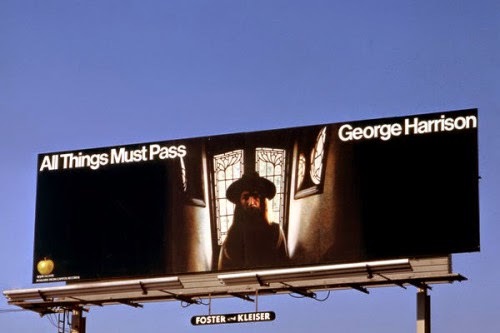
Daylight is good at arriving at the right time...

Published on December 20, 2019 08:36
December 19, 2019
Clapton is God
 Eric Clapton is one of the great rock guitarists. One of those artists who is so totally dedicated to his craft that in a career that now spends 55 years, he’s never lost his dedication to learning and growing.
Eric Clapton is one of the great rock guitarists. One of those artists who is so totally dedicated to his craft that in a career that now spends 55 years, he’s never lost his dedication to learning and growing.Clapton has the nickname Slowhand, and many are under the misconception that, while Clapton is undoubtedly one of the greats in the history of rock music, he plays slowly and methodically. That is not the basis for the nickname. Instead, Clapton when with the Yardbirds, who he joined in 1963 alongside Jimmy Page and Jeff Beck, would make the audience wait should a guitar string break during a show. The audience would start a slow handclap making Eric's restringing of his guitar a part of the show, hence "Slowhand."
Then there's the "Clapton is God" thing, which inspired the famous photograph of a dog doing his business on the wall where the epithet was painted. Clapton hated that. He said he never thought himself the greatest guitar player in the world. He only wanted to be the greatest guitar player in the world.
From the Yardbirds, Clapton moved on to John Mayall and the Bluesbreakers and then of course to Cream with Ginger Baker and Jack Bruce, whose 1967 album Disraeli Gears is one of my top 10 rock albums.
After Cream, another supergroup was formed with Clapton, Ginger Baker, Steve Winwood of Traffic and Ric Grech from Family. That band was called Blind Faith who debuted the act before 100,000 people in London’s Hyde Park in June 1969 playing the megahit "Can't Find My Way Home."
But Clapton was the consummate artist and didn’t like being in the spotlight, and so, in the summer of 1969, he toured with Delaney and Bonnie and Friends. Delaney and Bonnie were kind of like Ringo Starr today, who’s All-star Band is ever-changing; everyone wanting to play with Ringo. Clapton was content to play his guitar quietly off to the side.
But that wasn’t all. He was also in the Plastic Ono Band and, of course, played guitar on George Harrison's "While My Guitar Gently Weeps." Clapton with the Delaney and Bonnie band were the session musicians for Harrison's All Things Must Pass. This was a busy guy.
50 years ago, the anonymity afforded him with Delaney and Bonnie led to his new project with Bonnie Bramlett as his Muse, Derek and the Dominos, and the LP with Clapton's most famous song “Layla,” one of the greatest singles ever released.
Published on December 19, 2019 07:46



